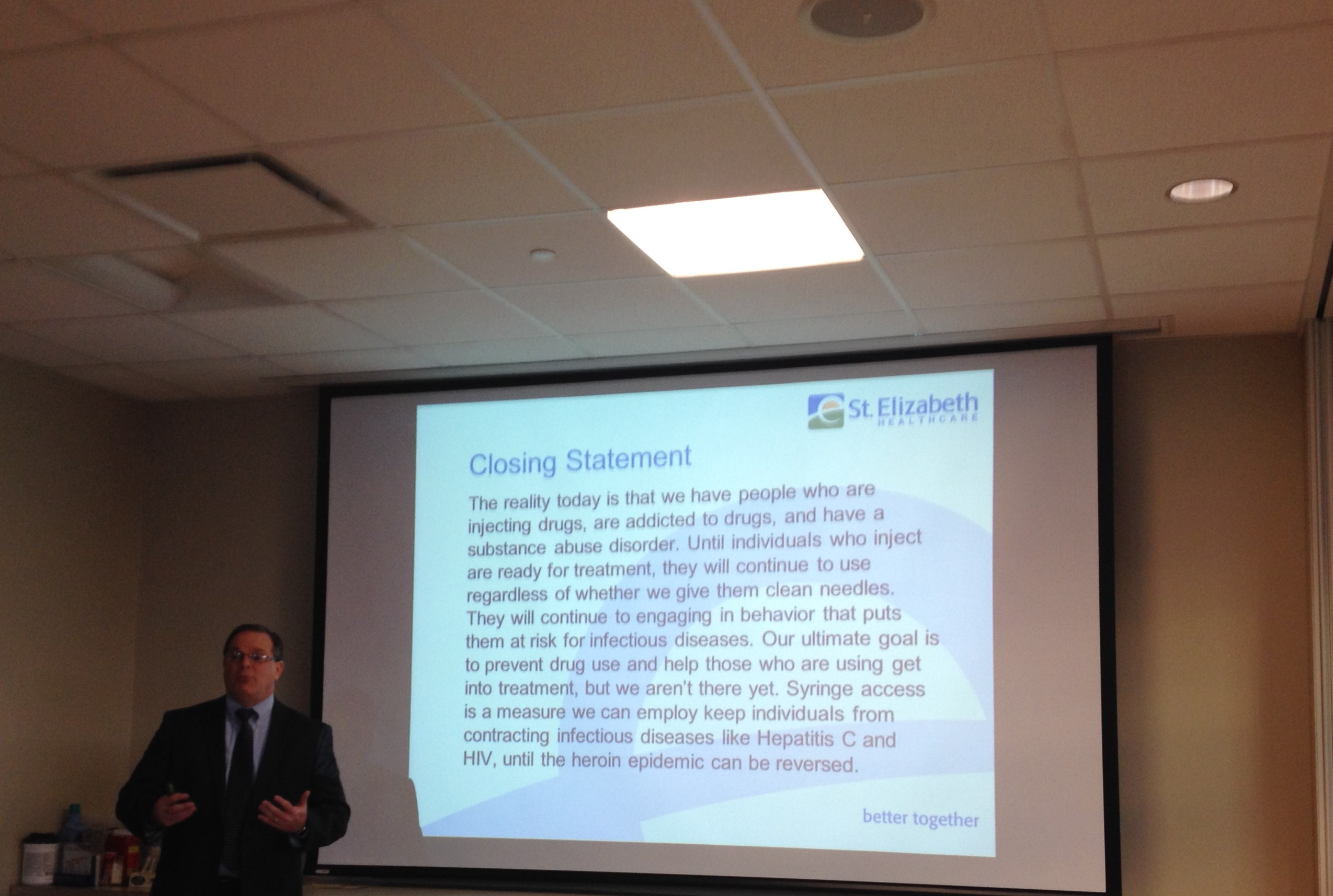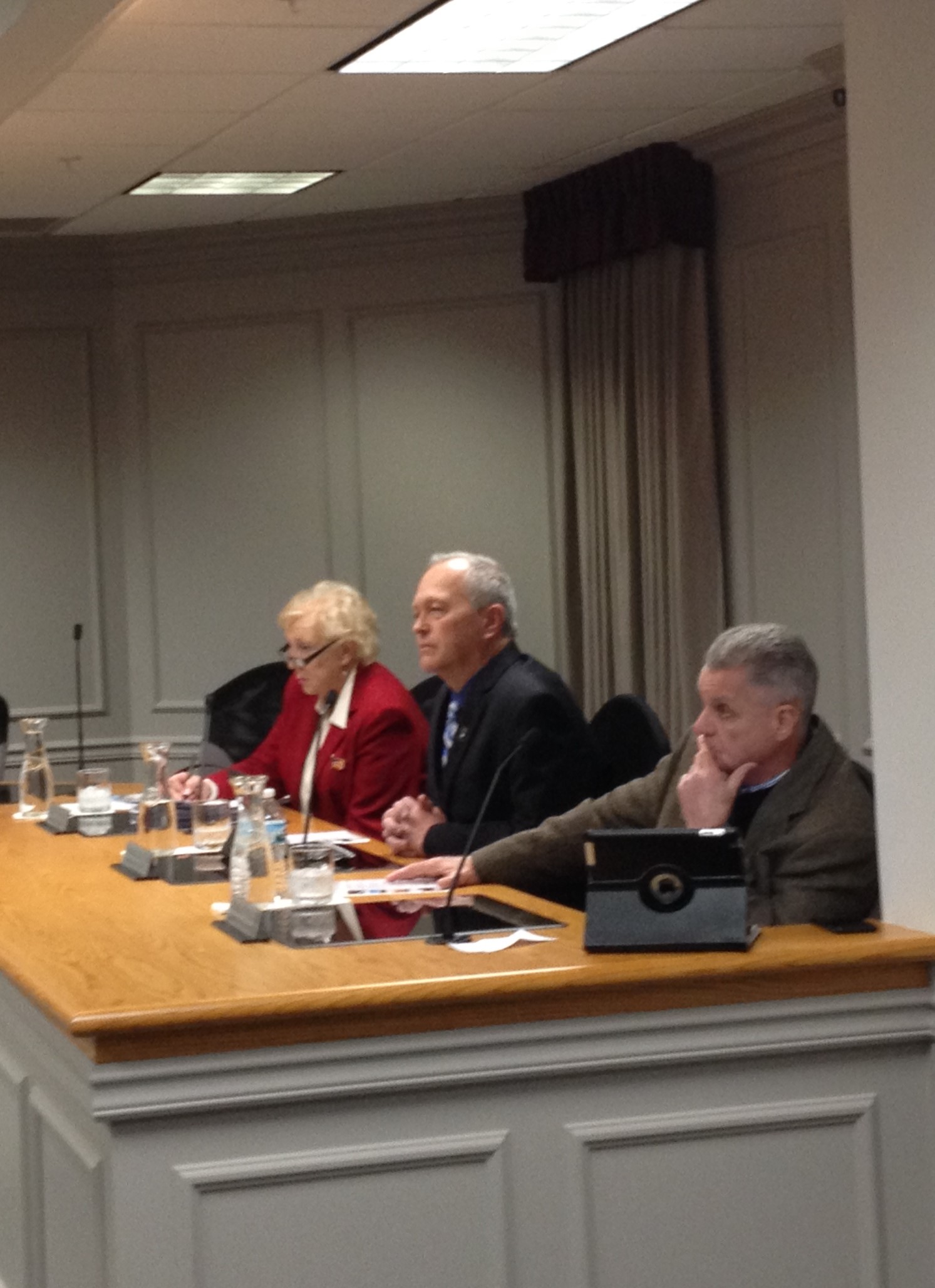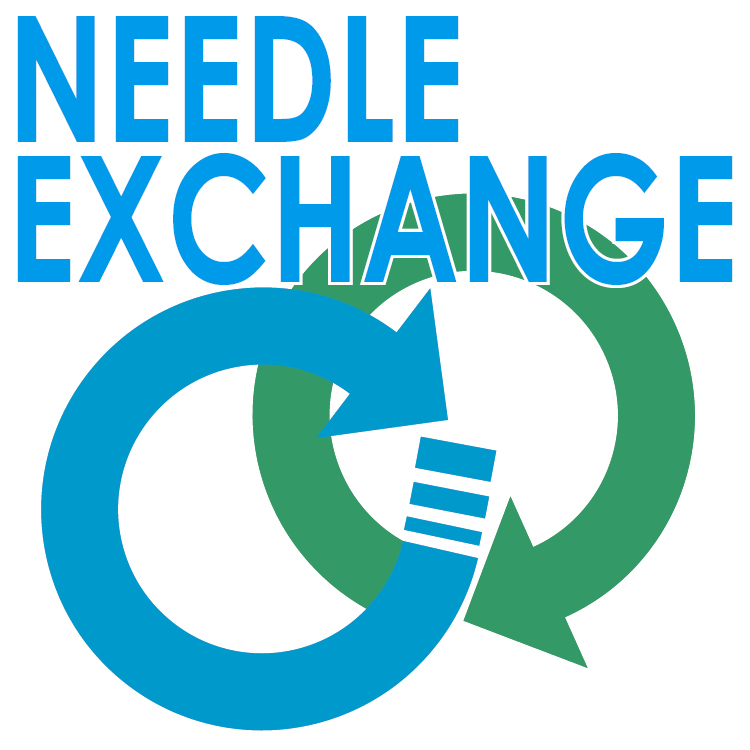By Mark Hansel
NKyTribune managing editor
Supporters of a needle exchange program in Northern Kentucky continue to seek approval from city and county leaders.
St. Elizabeth Healthcare CEO Garren Colvin and Northern Kentucky District Director of Health Dr. Lynne Saddler have been leading the effort.

St. Elizabeth Healthcare CEO Garren Colvin speaks in support of needle exchange at a Covington Business Council event on January 29 (photos by Mark Hansel).
They, along with other proponents of needle exchange, have made significant progress since Colvin addressed the Kenton County Mayors’ meeting in December and began a full-court press to garner regional support for a program.
Independence Mayor Chris Reinersman introduced a draft document at the January Kenton County Mayors’ meeting that will likely be used as the blueprint for cities and counties as they weigh in on the measure. Monday, the Independence City Council joined Williamstown as Northern Kentucky cities that have voted in favor of a regional needle exchange program.
While there would be no needle exchange in Independence, the resolution in support is an important step in the effort to attain a regional consensus for the program.
Colvin has said he hopes for a domino moment when all of the tiles begin to fall and a regional needle exchange program becomes a reality.
Boone County has long been viewed as the key to making that happen, but many believe there is not enough support on the Fiscal Court for approval of a resolution.
Tuesday Colvin, Saddler and other representatives from their organizations, made their case to Boone County’s elected body.
“In 2015, Kentucky passed a law, giving the health department the authority to implement a syringe exchange program,” Colvin said. “Part of that law requires the location a program takes place (to get) permission from the county and the city.”

Northern Kentucky District Director of Health Dr. Lynn Saddler addresses the Boone County Fiscal Court Tuesday, Feb. 2 in hopes of garnering approval for a needle exchange program in Northern Kentucky.
In Northern Kentucky, that would be Covington, in Kenton County, Newport in Campbell County and Florence, in Boone County. Those cities, and Williamstown in Grant County house the Northern Kentucky Health Department facilities where needle exchange would take place.
While none of the counties or cities have voted yet, it appears there is support in both Covington and Newport, and their respective counties, as long as Florence and Boone County come on board.
When needle exchange was included in the Senate Bill 192 which passed in March, 2015, it was heralded by many as a key component in the fight against the region’s heroin epidemic. While Louisville and Lexington have implemented needle exchange programs, Northern Kentucky is still struggling with the issue.
Colvin has said St. Elizabeth would provide monetary support, but will not offer its facilities as needle exchange locations.
Some members of the Florence City Council indicated they have begun to recognize the benefits of a needle exchange program following a presentation by Colvin and Saddler January 19.
That is significant because uncertainty about support from Florence has also been seen as a stumbling block to approval in other cities. Unanimous regional approval is deemed critical to the successful implementation of a program.
Florence Mayor Diane Whalen said the city would wait until Boone County weighs in on the measure before it considers adopting a resolution.
“There is really no point in us considering the issue until Boone County addresses it,” Whalen said. “If the county doesn’t approve it, it doesn’t matter what we would decide.”
Colvin and Saddler are making inroads by focusing on the potential health hazards associated with an epidemic of Hepatitis C or HIV, which could be fostered by the sharing of contaminated syringes.
“We’re here to provide education in an attempt at some point in time to come back and ask for approval of the program,” Colvin said. “It’s about syringe exchange, but it’s also about the impact that hepatitis C and HIV will have on our community if we are not able to control this outbreak and this disease.”
In 2015 St. Elizabeth Healthcare identified more than 800 cases of hepatitis C at a treatment cost of $85,000 per individual affected. The number of cases is 20 per cent higher than the national average.
The cost of treatment for an individual with HIV is about $800,000 per case over a lifetime.
“We have the issue of first responders who are showing up for 911 calls who are getting exposed to the disease,” Colvin said. “We are not here to advocate enabling people (who are) addicted, because the individuals who are using IV as the method of administering those drugs are using dirty needles.”
Colvin explained that if a household has six intravenous users, they will continue to use drugs and all of them will share the same needle.
“The fact that we are providing clean needles will not change (that) or enable individuals using those drugs currently,” Colvin said.
There are also concerns that dirty needles discarded in parks and other areas create a health risk to the general public.
Saddler said it is the responsibility of the health department to stop the spread of diseases and prevent outbreaks and that there is still a window to do that with HIV and hepatitis C.
“When we say syringe access exchange programs, I want you to think disease prevention and disease control,” Saddler said. “We have a heroin epidemic, we have a hepatitis C outbreak. What we are trying to do is stop the spread of hepatitis C and prevent an HIV outbreak from happening.”
She pointed to Scott County, Indiana as an example of how an HIV outbreak can occur quickly and overwhelm a community.
In just a few months, more than 100 new cases of HIV were identified in Scott County. In a little more than a year, 188 people have contracted HIV in a county of 24,000 people, largely due to intravenous drug use. If a similar percentage outbreak were to occur in Northern Kentucky, Saddler said that number would be more than 3,100, with a financial burden of at least $1.9 billion.

Boone County Commissioners (l to r) Cathy Flaig, Charles Kenner and Charlie Walton listen to a presentation in support of a needle exchange program at the Feb. 2 Fiscal Court meeting.
“That’s a lot of money, somebody is going to have to pay for that care,” Saddler said. “Those are a lot of people that are going to need services. This is going to overwhelm, not just the health department and our hospital system, it will overwhelm the region. We will have to call upon assets from the state and federal government to come in and help deal with that kind of a situation.
“When we say syringe access exchange programs, I want you to think disease prevention and disease control,” Saddler said. “We have a heroin epidemic, we have a hepatitis C outbreak. What we are trying to do is stop the spread of Hepatitis C and prevent an HIV outbreak from happening.”
Colvin cited several reasons why the health department facilities are the appropriate place for needle exchange.
“The health department is the location where all of the services are provided,” Colvin said. “Every individual coming in can get tested for hepatitis C, and HIV; if they are a female, they can get a pregnancy test, to see if they are impacted.”
Saddler said in addition to testing, counseling about substance abuse, which can ultimately lead to a break from addiction, also takes place at health department facilities.
“Studies have shown that people who participate in these kinds of programs are significantly more likely to choose to go into treatment for their addiction,” Saddler said. “I think when people talk about this program enabling drug users to continue to use drugs…it also provides an opportunity for people to choose to get into treatment and I think that’s an important aspect of the program as well.”
Boone County Judge-executive Gary Moore said the county would provide an opportunity for those opposed to needle exchange to address the Fiscal Court before it considers a vote.
“I’m going to try to encourage that at our next meeting, which is Feb. 16,” Moore said. “Once we do that, then we can get some feedback from the commissioners as to whether we move forward or not.”
The cities and counties that have expressed support have indicated that the program must be implemented throughout the region.
Covington Mayor Sherry Carran has said if just one city and county approves a program, everyone seeking needle exchange in the region would flock there. She added that if the resolution was drafted contingent on implementation at all three health department facilities in Northern Kentucky, it might be more likely to gain approval.
Colvin said education about health risks is the key to approval in Northern Kentucky and he, Saddler and others who support needle exchange, will continue with the presentations throughout the region.
Contact Mark Hansel at mark.hansel@nkytribune.com


















Why don’t the elected officials just have the taxpayers fund free heroin as well as clean needles?